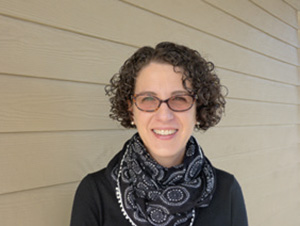
JFSCNJ will host caregiver conference on October 22.
There are only four kinds of people in the world—those who have been caregivers, those who are caregivers, those who will be caregivers and those who will need caregivers.
— Rosalynn Carter
A caregiver is anyone who helps take care of another person, such as a child, aging parent, spouse, friend or neighbor. Caregiving tasks range from making doctors’ appointments, filling a pillbox and transportation, to helping with bathing, dressing and feeding. Caregivers can be paid professionals or unpaid family caregivers. Family caregivers are the primary caregivers for millions of older Americans. Consider the following statistics:
- Approximately 43.5 million caregivers have provided unpaid care to an adult or child in the last 12 months. [National Alliance for Caregiving and AARP. (2015). Caregiving in the U.S.]
- About 34.2 million Americans have provided unpaid care to an adult age 50 or older in the last 12 months. [National Alliance for Caregiving and AARP. (2015). Caregiving in the U.S.]
- The majority of caregivers (82 percent) care for one other adult, while 15 percent care for two adults, and 3 percent for three or more adults. [National Alliance for Caregiving and AARP. (2015). Caregiving in the U.S.]
- Approximately 39.8 million caregivers provide care to adults (aged 18+) with a disability or illness or 16.6 percent of Americans. [Coughlin, J. (2010). Estimating the Impact of Caregiving and Employment on Well-Being: Outcomes & Insights in Health Management.]
- About 15.7 million adult family caregivers care for someone who has Alzheimer’s disease or other dementia. [Alzheimer’s Association. (2015). 2015 Alzheimer’s Disease Facts and Figures.]
Caregiving can be a rewarding experience. Family caregivers report feeling proud of their accomplishments in helping others, especially in difficult situations that require patience and creativity. The time and attention given to another person who is vulnerable can be a rewarding experience. Some caregivers have found that caregiving changes one’s perspective on life and what it means to live a life well-lived.
While caregiving can be gratifying, caregiving can also be challenging and burdensome. On average, family caregivers caring for someone over 50 years old generally spend 24.1 hours each week rendering care. Twenty-two percent of caregivers for adults over the age of 50 provide care over 41 hours each week. In addition, family members typically take on the responsibilities of caregiving with little preparation and provide care with little or no support. Research has shown that providing care for someone who is chronically ill impacts the physical, mental and emotional health of the caregiver—this is also known as caregiver stress.
Symptoms of caregiver stress include:
- Feeling overwhelmed
- Feeling isolated
- Sleeping too much or not enough
- Changes in weight (gaining or losing weight)
- Exhaustion
- Losing interest in hobbies/activities
- Often feeling sad, angry or worried
- Body aches, including headaches
- Abusing alcohol or drugs, including prescription medications
Taking care of oneself, or self-care, is especially important for caregivers as self-care can relieve stress and help prevent the physical and emotional effects of stress on overall health.
Jewish Family Service of Central NJ (JFSCNJ), a non-sectarian health and social service agency, will be hosting a caregiver conference by leading experts called “Finding Meaning in Family Caregiving” on Sunday, October 22, 9:30 a.m.-1:30 p.m., at Bruriah High School, 35 North Avenue, Elizabeth.
The conference, supported by a grant from the JFNA Center for Advancing Holocaust Survivor Care and The Jewish Federation of Greater MetroWest Holocaust Survivor Fund, is open to the entire community at no charge. A continental breakfast will be served. Kosher dietary laws will be observed. Free self-care kits will be available for all those who attend.
Registration will take place from 9:30 a.m. to 10 a.m., followed by the keynote address titled “Finding Gratitude & Positive Meaning in Family Caregiving” presented by renowned husband and wife team Barry J. Jacobs, Psy.D. and Julia L. Mayer, Psy.D., psychologists and co-authors of the new book “AARP Meditations for Caregivers —Practical, Emotional and Spiritual Support for You and Your Family.”
Breakout sessions will be presented by Dr. Carissa Kealy (nee Bozzo), a psychologist with clinical expertise in Holocaust Survivor Care, who will discuss “Resiliency: How to Acknowledge Your Loved Ones While Strengthening Your Own”; Alice Greenberg-Sheedy, LSW, JFS Alzheimer’s/Dementia care coordinator, who will discuss “Brain Health for the Active Mind”; and Kathleen McMahon, BSN, MA, EdM, JFS nurse, who will discuss “Physical Aspects of Self Care—Sleep, Nutrition and Exercise.”
This program is made possible by federal funds through the JFNA Center for Advancing Holocaust Survivor Care. Approximately 48 percent of the project, or $160,000, comes from federal sources. Approximately 52 percent, or $173,333 comes from non-federal sources.
JFSCNJ board members Dr. Emil T. Berk and Mandi Zucker are chairs of the event, and Barbara Mason and Harriet Tesse serve as vice chairs.
Registration is recommended but not mandatory. To register, contact Alyssa Reiner at [email protected] or 908-352-8375.
By Alice Greenberg-Sheedy,
LSW
Alice Greenberg-Sheedy, LSW, completed the Masters of Social Work (MSW) program at Rutgers University School of Social Work, where she also obtained a certificate in aging and health.










